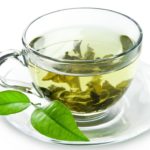Green Tea – Part 1
Green tea – it’s become a major player in the health and fitness world, and for good reason. There are many benefits to drinking green tea, although unfortunately, most of green tea’s benefits have been highly skewed by the fitness industry in their quest to market green tea as the ‘miracle fat loss drug.’ Green tea extract fat burners, dieter’s green tea, the list goes on.
Now that’s not to say that green tea can’t help you with losing weight, and adding to your health and quality of life; quite the opposite in fact. Green tea DOES have many health benefits, and I wanted to give you guys the cold hard facts about green tea. Without further ado, here is my green tea – part 1 post.
So to start my research off, I decided to look at a few academic studies that have been done on green tea and its weight loss, and other health benefit links. Let me just say that reading scientific articles are n o t fun. Sure, they have really interesting content but sheesh, the language … the language! Everything is epicatechin this, supernatant that … which is exactly why most people just accept the health benefits of green tea with little to no research into it. And I definitely don’t blame you guys!!! However, someone has to do it AND give you all an honest and real summary of green tea’s health benefits soooo here goes nothing 🙂
There have been scholarly articles written about green tea since the 1970s (as far as i could tell), and a whole bunch in the last decade. What is so special about green tea, and various other tea’s is this ingredient: C A T E C H I N S
EGCG’s belong to a group of compounds called catechins, Catechins are a type of flavanol, which is essentially a naturally occurring antioxidant (which can, but not neccessarily, help prevent cancer). Catechins include several different compounds, and in green tea these are:
E P I G A L L O C A T E C H I N
E P I C A T E C H I N G A L L A T E,
E P I G A L L O C A T E C H I N G A L L A T E (EGCG)
Phew, what a mouthful!!!
Okay guys, you still with me? Okay, awesome!! Let’s continue.
The EGCG is the thing we wanna focus on, because out of the three compounds given above, EGCG is the big daddy, and the compound that is you find the biggest amount of in green tea.
Sorry for the chemistry lesson guys! After reading several different articles (not all of which are posted below), here is a round up of the health benefits of green tea:
- Can help in fat and weight loss due to its ability to increase energy levels, and fat oxidation (obviously if you are eating a terrible diet and not exercising, it won’t help much)
- Can help regulate blood glucose levels (important because crazy all over the place blood sugar levels can make you crazy hungry .. I’ll talk more about blood sugar levels in another post)
- Studies have shown promising results in using green tea in the fight against various types of cancers (does NOT mean that drinking green tea will 100% prevent cancer)
- Can help keep your breath clean (lol)
- Can be helpful in making you feel less bloated (this is just from personal experience, and this probably just happens because you are running to the bathroom so much!)
Alright guys, I am going to end part I there. I think that’s enough information for one day. Stay tuned for part II where I will talk about how much green tea you should drink, and my own personal experiences with green tea. It will be a much lighter blog post and not as intense as this one I promise 🙂
I hope you all enjoyed this post, and please let me know if you have any questions or suggestions for a new post!
Honestly Yours,
Alice
Key sources:
Green Tea and Theamine: Health Benefits – Raymond Cooper
Going Green: The Role of the green tea component EGCG in Chemoprevention – Laura Schramm
Emerging Evidence for Tea Benefits – Carrie Ruxton
Nutrition and Health Info Sheet – Karrie Heneman and Sheri Zidenberg-Cherr
Nutrient Data Laboratory US Department of Agriculture. USDA Database for the Flavonoid Content of
Selected Foods. US Department of Agriculture, Agricultural Research Service, 2007 (chart)
